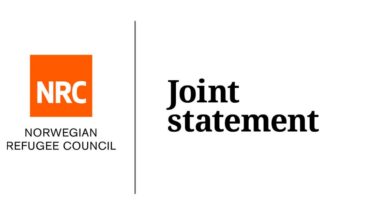Telecommunications Regulation and Administration for May 6, 2024

70/80/90 GHz Revised Rules
Last week, the FCC’s revised rules for the 70/80/90 GHz bands were published in the Federal Register. The revised rules allow point-to-point links to endpoints in motion and allow the use of smaller antennas in the 70 and 80 GHz bands to facilitate the use of backhaul. The rules also seek to improve the accuracy of the link registration database for the 70/80/90 GHz bands by requiring certification of link construction and operation. The rules go into effect on May 29, 2024, except for the newly adopted channel plan, which will take effect September 1, 2024, and the link registration and coordination rules, which have been indefinitely suspended pending Office of Management and Budget approval.
Nearly $200 Million Fine for Sharing Customer Data
The FCC fined AT&T, Sprint, T-Mobile, and Verizon a total of nearly $200 million for illegally sharing access to customers’ location data without consent and without taking reasonable measures to protect the information against unauthorized disclosure. The FCC’s investigation revealed that each entity sold customers’ location information to aggregators, who then resold the information to third-party location-based service providers. Under Section 222 of the Communications Act, carriers are required to take reasonable measures to protect certain customer information.
Equipment Authorization Program NPRM
The FCC will consider a Notice of Proposed Rulemaking (“NPRM”) at its May Open Meeting that proposes to prohibit Telecommunications Certification Bodies (“TCBs”) or test labs in which any entity on the Commission’s Covered List has direct or indirect ownership or control of 10% or more. The NPRM would also require TCBs and test labs report any entity that holds a 5% or greater direct or indirect equity and/or voting interest in them. The FCC also seeks comment on whether the Commission should impose eligibility restrictions for TCBs and test labs based on lists developed by the Executive Branch agencies.
FCC and FTC Memorandum of Understanding
The FCC and FTC formalized a Memorandum of Understanding (“MOU”) to underscore the FCC’s reestablished authority over broadband Internet access service (“BIAS”) after the FCC voted to reclassify BIAS as a telecommunications service under Title II of the Communications Act. The vote allows the FCC to enforce rules designed to ensure Internet openness by prohibiting Internet service providers from blocking, throttling, or engaging in paid prioritization of content, among other things. Similarly, the FTC has authority to prevent unfair methods of competition and unfair and deceptive acts or practices affecting commerce. The MOU establishes that both the FCC and FTC have legal, technical, and investigative expertise and experience to render advice and guidance to the other as it relates to Internet service providers.
911 Telecommunicator Health and Wellness Webinar
Inadequate staffing, outdated technology, and high stress and burnout rates are among the challenges that continue to plague Emergency Communications Centers (“ECCs”) and 911 professionals. Please join Heather McGaffin (Director, DC Office of Unified Communications), Scott Brillman (Director of 9-1-1, Fairfax County), Mark Reddish (Senior Counsel & Manager of Government Relations at APCO), Jonathan Gilad (VP of Government Affairs at NENA), and Sara Weston (Executive Director of 911der Women) for a virtual panel on May 7th at noon ET to discuss these health and wellness issues. The panelists will discuss how staffing shortages and technological gaps in our ECCs contribute to mental health and wellness challenges and will provide insight and solutions to address these challenges. Registration is free and available here.
Thomas B. Magee, Tracy P. Marshall, Sean A. Stokes, and Wesley K. Wright contributed to this article.



